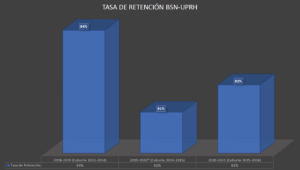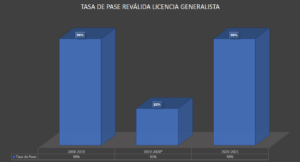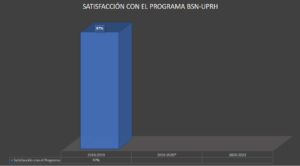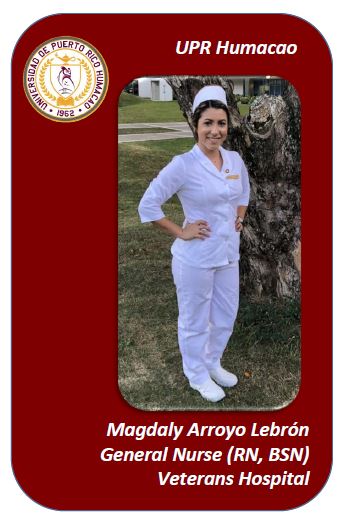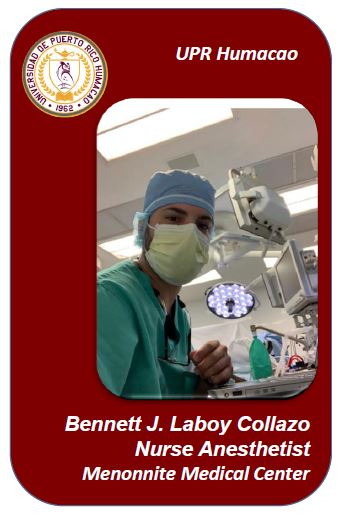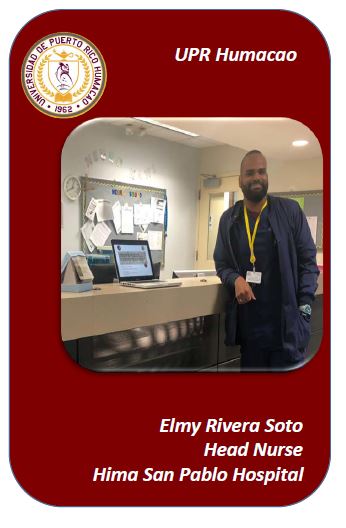- Performs his/her professional practice to promote health, reduce risks, and manage adaptation problems when intervening with the individual, family, groups, and community respecting their preferences, values, and needs.
- Incorporates critical thinking in decision making and problem solving to guarantee quality care founded on scientific knowledge and evidence-based practice.
- Utilizes effective oral, written and technological communication with the nursing and interprofessional team, the individual, family, group, and community to mitigate errors and support decision making.
- Integrates research for the evidence-based practice when considering the preferences and values of the individual, family, group, and community to promote quality care.
- Performs his/her professional nursing role when offering quality care within an ethical-legal framework, consistent with the professional standards and national safety goals.
- Applies biopsychosocial and scientific knowledge to offer care culturally sensitive to a diverse population that reflects a quality, safe, and cost-effective care.
- Shows leadership and care management skills in collaboration with the interprofessional team in the provision of quality care, respecting the preferences, values and needs of the client.

Retention Rate
* COVID-19
Graduation rate
Academic Year
2020 – 2021 (Cohort 2015-2016)
2019 – 2020* (Cohort 2014-2015)
2018 – 2019 (Cohort 2013-2014)
Percent
78%
66% *
93%
* COVID-19
Licensure pass rate
* COVID-19
Job Placement rate
Program Satisfaction Report
* COVID-19, ** Data has not been provided
In the following links you can access the success stories of our graduates


